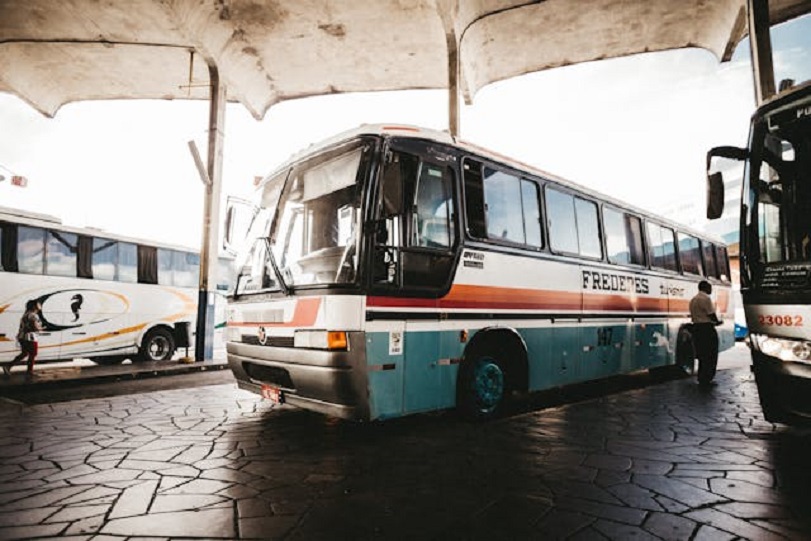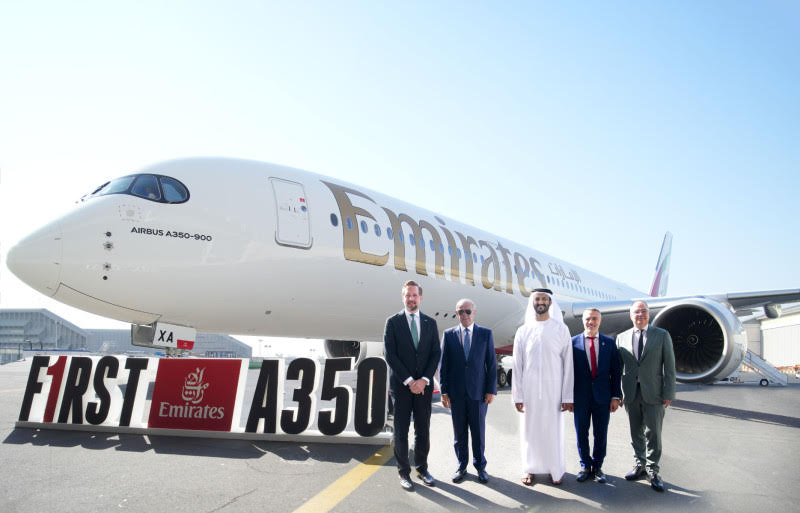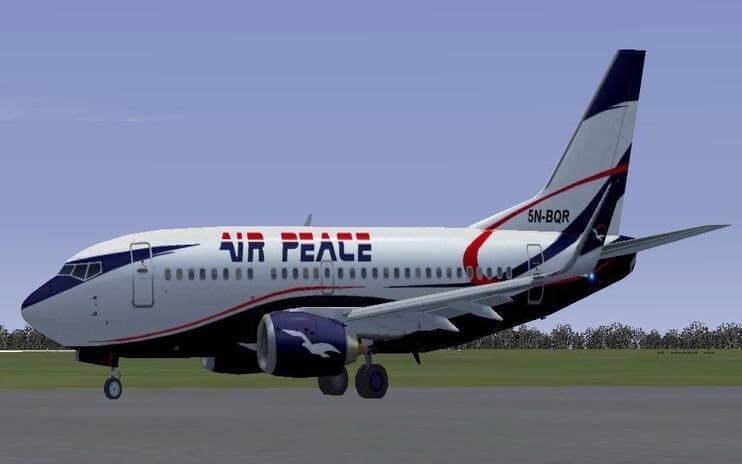Travel/Tourism
How Businesses Can Make Good Use of Transportation Services

Transportation services play a vital role in the operations of businesses, facilitating the movement of goods, services, and personnel. To make good use of transportation services, businesses must implement effective strategies and practices to optimize efficiency, reduce costs, and enhance overall productivity. This article will explore various ways in which businesses can make good use of transportation services to support their objectives and achieve success.
Supply Chain Optimization
One of the key ways businesses can make good use of transportation services is by optimizing their supply chain management. Effective supply chain optimization involves streamlining transportation routes, consolidating shipments, and minimizing transit times to reduce costs and improve efficiency. By leveraging transportation services strategically, businesses can ensure timely delivery of goods, minimize inventory holding costs, and meet customer demand effectively. Moreover, businesses can use transportation data and analytics to identify inefficiencies and opportunities for improvement within their supply chain, allowing for continuous optimization and enhancement of transportation operations.
Just-in-Time Inventory Management
Using just-in-time (JIT) inventory management strategies, businesses may also benefit from transportation services. To decrease storage costs and inventory holding charges, JIT inventory management tries to synchronize production schedules with customer demand. This minimizes inventory levels. Transportation services play a critical role in JIT inventory management by facilitating the timely delivery of raw materials, components, and finished goods to production facilities and distribution centers. By relying on efficient transportation services, businesses can maintain lean inventory levels while ensuring that materials and products are available precisely when needed, thereby optimizing operational efficiency and reducing waste.
Customer Service Excellence
In the realm of transportation services, customer service excellence plays a pivotal role in ensuring a smooth and satisfactory experience for clients. If you are living in New York, considering options like charter bus rental in New York City, prioritizing customer service can make all the difference in meeting and exceeding passenger expectations. From the initial inquiry to the completion of the journey, providing attentive and responsive customer support enhances the overall reputation and reliability of transportation companies. Whether addressing inquiries, accommodating special requests, or resolving any issues that can arise during travel, exceptional customer service fosters trust and loyalty among clients. By focusing on customer service excellence, transportation services can effectively distinguish themselves and build lasting relationships with their clientele.
Expansion into New Markets
When it comes to expanding into new markets and reaching clients in other countries or territories, businesses can make use of transportation services to get a competitive advantage. Through the use of transportation networks and logistical skills, firms can efficiently expand their market reach and enter new geographic regions. Businesses can employ transportation services to distribute their goods to new places, build distribution channels, and enter new markets with a strategic approach. This is true whether the firm is growing domestically or worldwide. In addition, companies can use transportation data and insights to recognize new market trends, consumer preferences, and chances for competitive advantage. This enables businesses to make educated decisions and develop proactive plans for market development.
Sustainability Initiatives
In today’s environmentally conscious business landscape, businesses can make good use of transportation services by incorporating sustainability initiatives into their operations. Sustainable transportation practices, such as using alternative fuels, optimizing route planning, and reducing emissions, can help businesses minimize their environmental impact and support corporate social responsibility (CSR) goals. By partnering with eco-friendly transportation providers and adopting green logistics practices, businesses can reduce carbon emissions, conserve natural resources, and promote environmental stewardship throughout their supply chain. Moreover, businesses can communicate their sustainability efforts to customers and stakeholders, enhancing brand reputation and attracting environmentally conscious consumers.
Conclusion
In conclusion, businesses can make good use of transportation services by optimizing their supply chain management, implementing just-in-time inventory practices, prioritizing customer service excellence, expanding into new markets, and embracing sustainability initiatives. By embracing transportation services as a strategic asset, businesses can achieve their objectives and thrive in an increasingly interconnected and global marketplace.
Travel/Tourism
Emirates Unveils Airbus A350-900 in Dubai

By Aduragbemi Omiyale
One of the leading airline operators, Emirates Airline, has officially unveiled its first Airbus A350-900 at an exclusive event showcase in Dubai attended by aerospace partners, government officials and dignitaries, members of the media, as well as aviation enthusiasts.
The Emirates A350 features three spacious cabin classes, accommodating 312 passengers in 32 next-generation Business Class lie-flat seats, 21 Premium Economy seats and 259 generously pitched Economy Class seats.
The latest onboard products reflect the airline’s commitment to delivering a premium passenger experience while optimising operational efficiency. The Emirates A350 is the first new aircraft type to join Emirates’ fleet since 2008.
Apart from its newly delivered A350, Emirates operates two other aircraft types around the world to 140 destinations – the widebody Boeing 777 aircraft and the iconic ‘double decker’ Airbus A380 aircraft.
The A350’s introduction will enable Emirates to expand into new destinations globally, including mid-sized airports unsuited for larger aircraft. The Emirates A350 will be delivered in two versions – one for regional routes and one for ultra long-haul routes.
The Emirates A350 takes technology to another level. Customers can now adjust their electric window blinds at the touch of a button.
The aerBlade dual blind system will feature in Business and Premium Economy Class offering two shaded options, and the aerBlade single blind systems will make a debut in Economy Class, with all blinds showing the Emirates Ghaf tree motif when closed.
Business Class on the Emirates A350 will feature 32 luxurious leather ‘S Lounge seats’, inspired by the Mercedes S Class for an exceptional travel experience. The A350 aircraft will feature brand new additions of wireless charging on the side cocktail table in Business Class, and in-seat lighting controls with 5 streams of light. The 1-2-1 seat configuration in the A350 Business Class ensures a very private, exclusive experience.
Speaking at the event, the chairman of Emirates Airline, Mr Ahmed bin Saeed Al Maktoum, said, “Today is an exciting milestone for Emirates as we showcase our first A350 and usher in a new era for our fleet and network growth.
“This aircraft sets the stage for Emirates to spread its wings farther by offering added range, efficiency and flexibility to our network, enabling us to meet customer demand in new markets and unlock new opportunities in the cities that we serve.
“Onboard, our updated interiors and seating configurations will help us deliver a more elevated and comfortable experience to travellers across every cabin class.
“The 65 Emirates A350s joining our fleet in the coming years fit into the airline’s broader plans to support our visionary leadership’s Dubai’s D33 Strategy, which will transform the city into a pivotal hub in the global economy by expanding its connectivity and reach.”
Travel/Tourism
Air Peace Employees Undergo Training at Boeing Global Learning Institute

By Aduragbemi Omiyale
Some employees of Air Peace have upgraded their aviation safety skills at a training course organised by Boeing through the Boeing Global Learning Institute (BGLI) in collaboration with Cranfield University, United Kingdom as part of a shared commitment to shaping the future of aviation leadership.
Over the years, Air Peace has recognized that a deep, unwavering commitment to safety is key to its continued success.
The programme is aimed at building upon that vision, enabling executives to lead with confidence, manage risks effectively, and create high-performing teams that prioritize safety at every level.
In the five-day in-person training, all the executives and others in the various departments of Air Peace were taught advanced safety leadership skills and gained practical tools to implement the new knowledge.
The Head of Aerospace at Cranfield University, Prof Graham Braithwaite, said, “This collaboration ensured that the training directly addresses the challenges Air Peace faces, culminating in real-world capstone projects that would have a lasting impact.”
Reinforcing this position, the Lecturer for Organisational Resilience and Change at Cranfield School of Management, Fabian Steinmann, who was excited at the great progress Air Peace made over the years, said that they are happy to learn and share knowledge and find ways to strengthen the system, making it robust and flexible to adapt to the ever-changing environment.
“Safety is at the heart of everything we do at Cranfield so the privilege we have is that we travelled around the world, picked up the good practices, learned more about the culture and the operation in various countries so we’re here to facilitate that exchange with Nigeria and Air Peace to see how we share some of the good practices and lessons learned from all around the world and translate them into their operation.”
Also, the Senior Organisational Consultant and Programme Manager at Boeing Global Learning Institute, Harry Magui, said, “The Boeing company has long recognised the importance of supporting continuous learning of our aviation partners.
“To that end, the Boeing Global Learning Institute designs and delivers numerous learning programmes to both emerging and established leaders of our partners.
“These efforts aim to develop leadership, business, and technical skills so that our partners can improve their business processes, increase operational efficiency and enable leaders to strengthen their teams to ultimately grow their business.’
Alluding to the great work Air Peace has done in making safety a pre-condition rather than just a priority, Magui said, “We’re here to partner with our great partner, Air Peace who have been phenomenal in advancing the Aviation Industry in Nigeria, so we are here to support them to harness more opportunities in the future with the Advanced Leadership in Safety Excellence Training for all its top leadership within the organization.”
The Safety Manager at Air Peace, Captain Godfrey Ogbogu, said, “This class is quite essential and we’re lucky to have our resource persons impact knowledge on us. It is a well-structured training, especially for Air Peace because of where we are now and where we hope to go in the future.
“The whole essence of this class is to reinforce what we know before and be exposed to other avenues of learning. The aviation industry is ever-changing and dynamic, and Air Peace has to be abreast of such developments.”
Travel/Tourism
Emirates Expects Strong Customer Demand as Half-Year Profit Hits $2.5bn

By Aduragbemi Omiyale
In the first six months of the 2024-25 financial year of Emirates Group, a net profit of AED 9.3 billion ($2.5 billion) was recorded, with the pre-tax profit growing to AED 10.4 billion ($ 2.8 billion).
Also, the revenue went up by 5 per cent to AED 70.8 billion ($19.3 billion) from the AED 67.3 billion ($18.3 billion) recorded in the same period of last year, reflecting the consistently strong customer demand across business divisions, and across regions.
“We expect customer demand to remain strong for the rest of 2024-25, and we look forward to increasing our capacity to grow revenues as new aircraft join the Emirates fleet and new facilities come online at dnata. The outlook is positive, but we don’t intend to rest on our laurels.
“We will stay agile in deploying our capacity and resources in a dynamic marketplace,” the chief executive of the organisation, Mr Ahmed bin Saeed Al Maktoum, stated.
“The Group has surpassed its record performance of last year to deliver a fantastic result for the first half of 2024-25. This again illustrates the power of our proven business model working in combination with Dubai’s growth trajectory as a city of choice to live, work, visit, connect through, and do business in,” he added.
It was observed that apart from demonstrating strong operating profitability, Emirates maintained a robust EBITDA of AED 20.4 billion ($5.6 billion), slightly lower than AED 20.6 billion ($5.6 billion) last year.
The firm posted a solid cash position of AED 43.7 billion ($11.9 billion) as of September 30, 2024, compared with the AED 47.1 billion ($12.8 billion) achieved on March 31, 2024.
Emirates has been able to tap on its own strong cash reserves to support business needs, including payments for new freighter aircraft orders and other debt payments, also paying AED 2 billion in dividends to its owner, as declared at the end of its 2023-24 financial year.
“The group’s strong profitability enables us to make the investments necessary for our continued success. We’re investing billions of dollars to bring new products and services to the market for our customers; to implement advanced technologies and other innovation projects to drive growth; and to look after our employees who work hard every day to ensure our customers’ safety and satisfaction,” the chief executive stated.
Emirates continued to enhance its network and increase connectivity options through its Dubai hub. During the first half of 2024-25, Emirates increased scheduled flights to 8 cities: Amsterdam, Cebu, Clark, Luanda, Lyon, Madrid, Manila and Singapore.
In May, Emirates restarted daily services to Phnom Penh in Cambodia via Singapore. In June, it launched daily services to Bogotá via Miami, expanding the airline’s South American presence to Colombia. In September, Emirates opened a new route to Madagascar via the Seychelles – taking its passenger and cargo network to 148 airports in 80 countries by September 30.
Expanding connectivity options for customers, during the first six months of 2024-25, Emirates entered into new agreements with 7 codeshare, interline, and intermodal partners: AirPeace, Avianca, BLADE, ITA Airways, Iceland Air, SNCF Railway, and Viva Aerobus.
-

 Feature/OPED5 years ago
Feature/OPED5 years agoDavos was Different this year
-
Travel/Tourism8 years ago
Lagos Seals Western Lodge Hotel In Ikorodu
-

 Showbiz2 years ago
Showbiz2 years agoEstranged Lover Releases Videos of Empress Njamah Bathing
-

 Banking6 years ago
Banking6 years agoSort Codes of GTBank Branches in Nigeria
-

 Economy2 years ago
Economy2 years agoSubsidy Removal: CNG at N130 Per Litre Cheaper Than Petrol—IPMAN
-

 Banking2 years ago
Banking2 years agoFirst Bank Announces Planned Downtime
-

 Sports2 years ago
Sports2 years agoHighest Paid Nigerian Footballer – How Much Do Nigerian Footballers Earn
-

 Technology4 years ago
Technology4 years agoHow To Link Your MTN, Airtel, Glo, 9mobile Lines to NIN


















